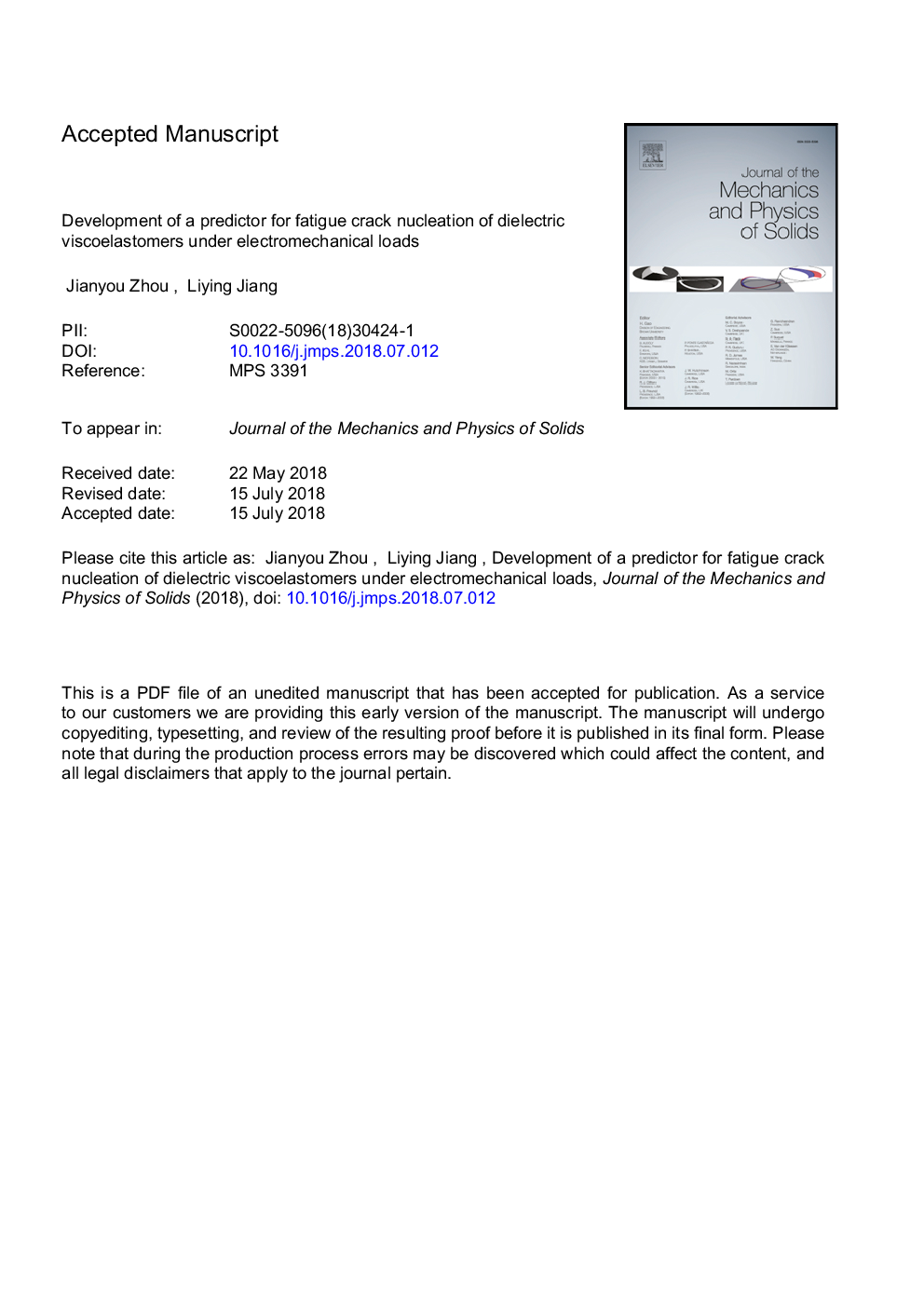| Article ID | Journal | Published Year | Pages | File Type |
|---|---|---|---|---|
| 7177375 | Journal of the Mechanics and Physics of Solids | 2018 | 35 Pages |
Abstract
Capable of yielding large deformation under electrical stimuli, dielectric elastomers (DEs) have extensive applications. In most applications, DEs undergo cyclic or time-varying loads over a long period. As a result, durability and fatigue analysis of DEs is a critical issue needs to be addressed. However, there are few models in the literature for predicting the fatigue damage of materials subjected to electromechanical coupled field. Moreover, the existing models fail to capture the effect of the intrinsic viscoelasticity of elastomers. The current work aims to bridge this gap. A configurational stress tensor for DEs is formulated for the first time and adopted as a predictor for their fatigue crack nucleation, which is based on the theoretical framework of configurational mechanics. Borrowing the ideas from the coupled field theory for dielectrics and the theory of finite-deformation viscoelasticity, the developed predictor can adopt most of the strain energy density functions for rubber-like materials and thermodynamics evolution equations for viscoelastic solids. With the developed fatigue predictor, the effects of different factors that may contribute to the fatigue damage of DEs are examined. It is found that the electrical part and the viscous part of the configurational stress do not lead to fatigue damage of DEs. Furthermore, simulation results show that the strain-softening behavior of elastomers exert a significant effect on the fatigue life of DEs. The modeling framework in this work is anticipated to be a useful platform for further study on the fatigue life of DEs under different loading conditions, and even applicable to other soft materials when subjected to coupled loads.
Related Topics
Physical Sciences and Engineering
Engineering
Mechanical Engineering
Authors
Jianyou Zhou, Liying Jiang,
